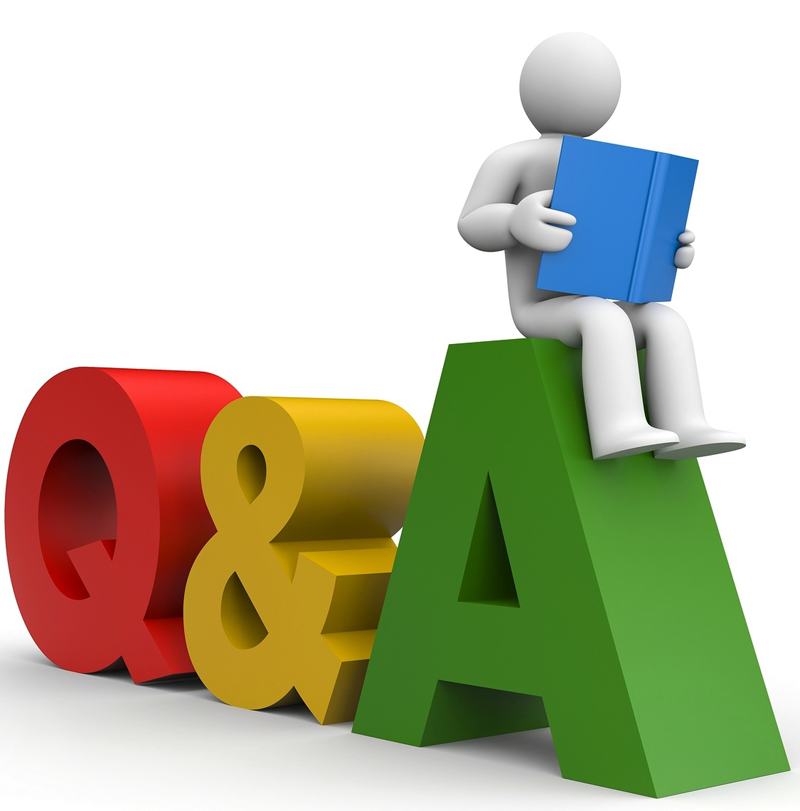Answer Questions Or Ask A Question: The Art Of Effective Communication
In today’s fast-paced digital world, the ability to answer questions or ask a question effectively can significantly enhance personal and professional interactions. Whether in a business meeting, classroom, or online forum, the way we communicate shapes our relationships and influences outcomes. This article delves into the nuances of question-and-answer dynamics, providing insights on how to master this essential skill.
Understanding how to answer questions or ask a question appropriately is vital in various contexts. Mastering this skill not only helps in gathering information but also fosters deeper connections with others. Moreover, effective communication serves as a bridge that connects diverse perspectives, allowing for better collaboration and problem-solving.
Throughout this article, we will explore different strategies for both answering and asking questions, examine their importance, and provide practical tips that can be applied in everyday situations. Emphasizing the principles of clarity, relevance, and engagement will ensure that your communication stands out and leaves a lasting impact.
Table of Contents
- The Importance of Asking and Answering Questions
- Types of Questions
- Effective Strategies for Answering Questions
- Skills for Asking Questions
- Common Barriers to Effective Communication
- Examples of Good Questions and Answers
- Cultural Considerations in Questioning
- Conclusion
The Importance of Asking and Answering Questions
Asking and answering questions are fundamental aspects of human interaction. These processes are not just about exchanging information; they are also about building rapport and understanding. Here are some reasons why mastering this skill is essential:
- Enhances Learning: Questions stimulate curiosity and encourage exploration, leading to greater knowledge retention.
- Promotes Engagement: Engaging in a dialogue through questions fosters a sense of involvement and investment in the conversation.
- Facilitates Problem Solving: Questions can help identify challenges and brainstorm potential solutions collaboratively.
- Builds Relationships: Effective questioning demonstrates interest and empathy, strengthening interpersonal connections.
Types of Questions
Understanding the different types of questions is crucial for effective communication. Here are the primary categories:
Open-Ended Questions
These questions encourage detailed responses and discussions. For example, “What do you think about the current project?”
Closed-Ended Questions
These questions can be answered with a simple “yes” or “no.” For instance, “Did you complete the report?”
Probing Questions
These questions dig deeper into a topic, prompting further explanation. For example, “Can you explain why you chose that approach?”
Leading Questions
These questions suggest a particular answer. For instance, “Don’t you think this strategy will work better?”
Effective Strategies for Answering Questions
When it comes to answering questions, employing effective strategies can enhance clarity and understanding. Here are some tips:
- Listen Actively: Pay attention to the question being asked, ensuring you fully grasp what is being inquired.
- Be Clear and Concise: Provide answers that are straightforward and to the point to avoid confusion.
- Support with Evidence: Whenever possible, back your answers with data or examples to lend credibility.
- Encourage Follow-Up Questions: Invite the questioner to delve deeper if they require further clarification.
Skills for Asking Questions
Asking questions is an art that requires skill and sensitivity. Here are some important skills to develop:
- Clarity of Purpose: Know what information you seek to make your questions more focused.
- Empathy: Consider the feelings and perspectives of those you are questioning to foster a comfortable environment.
- Timing: Ask questions at appropriate moments to ensure they are well-received and relevant.
- Follow-Up: Be prepared to ask additional questions based on the responses you receive to deepen the conversation.
Common Barriers to Effective Communication
Despite the importance of asking and answering questions, several barriers can hinder effective communication:
- Assumptions: Assuming you know the answer can prevent meaningful dialogue.
- Lack of Clarity: Ambiguous questions can lead to misunderstandings.
- Emotional Barriers: Anxiety or defensiveness can obstruct open communication.
- Cultural Differences: Varied cultural backgrounds can influence questioning styles and interpretations.
Examples of Good Questions and Answers
To illustrate effective communication, here are examples of good questions and their corresponding answers:
- Question: “What challenges have you faced in this project?”
Answer: “We encountered a few delays due to resource allocation, but we adapted by prioritizing tasks.” - Question: “How do you envision the team’s future success?”
Answer: “I believe that through consistent communication and collaboration, we can achieve our goals.”
Cultural Considerations in Questioning
Culture plays a significant role in communication. Different cultures have varying norms regarding questioning, which can affect interactions. Here are some considerations:
- Direct vs. Indirect Communication: Some cultures prefer direct questions, while others may favor a more indirect approach.
- Hierarchy: In hierarchical societies, asking questions to superiors may be viewed differently than in egalitarian cultures.
- Non-Verbal Cues: Pay attention to body language and tone, as these can convey meaning beyond words.
Conclusion
Mastering the skill of answering questions or asking a question is essential for effective communication. It enhances learning, builds relationships, and facilitates problem-solving. By employing the strategies and skills discussed in this article, you can improve your questioning and answering techniques to foster better interactions. Remember to practice active listening, clarity, and empathy in your conversations.
Now that you have explored the intricacies of effective communication, we invite you to share your thoughts in the comments below. If you found this article helpful, consider sharing it with others or exploring more on our site for additional insights!
Thank you for reading, and we look forward to welcoming you back for more valuable content in the future!
How To Change Streak Emoji On Snapchat: A Complete Guide
Michael Wilding Jr.: An In-Depth Look At The Life And Career Of The Talented Actor
Kinder Bueno 5 Pack: The Perfect Chocolate Treat For Every Occasion


